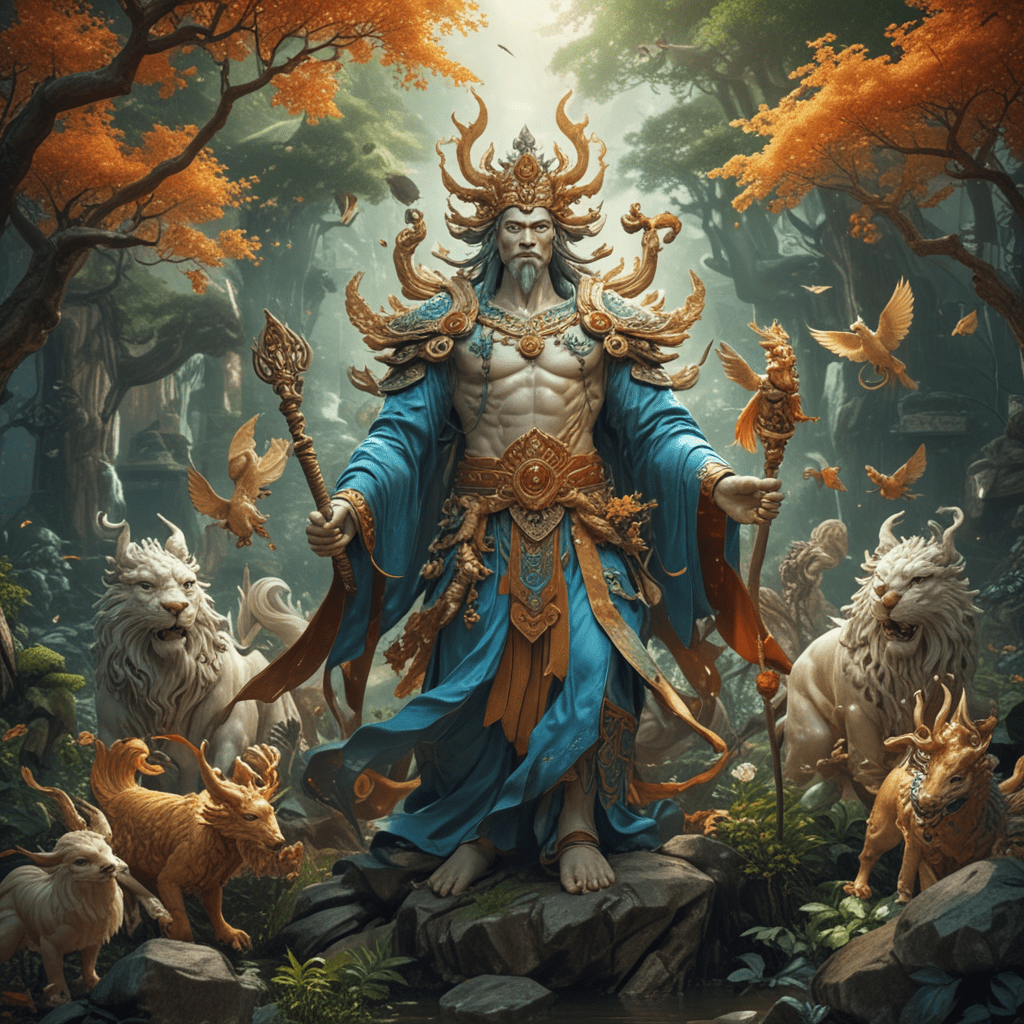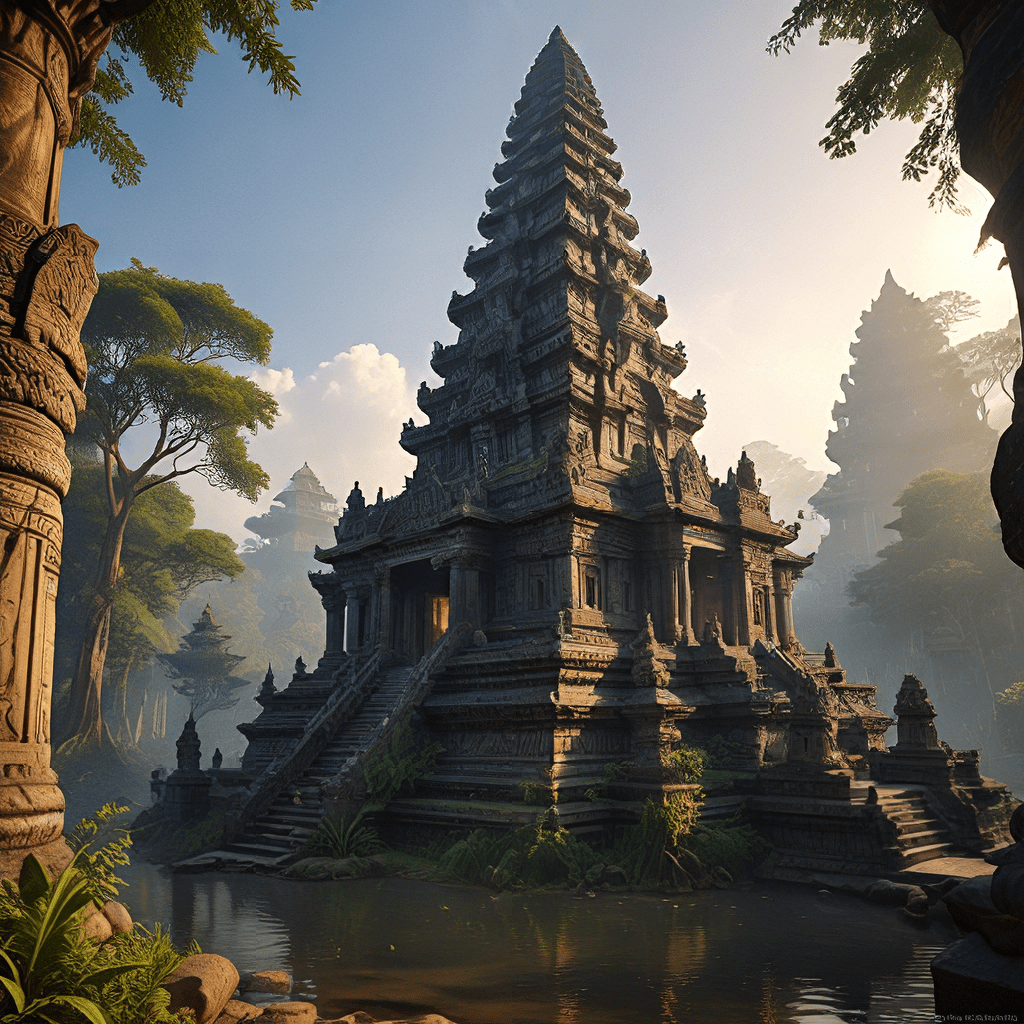Nüwa: The Earth Mother
Nüwa is the Chinese mythological Earth Mother and one of the most revered deities in Chinese culture. She is often depicted as a beautiful woman with a serpent's tail, and she is credited with creating humans from yellow earth. Nüwa is also associated with the creation of the universe, and she is said to have repaired the heavens after a great war between the gods.
Fuxi: The Creator God and Ruler of Heaven
Fuxi is the Chinese mythological creator god and the first of the Three Sovereigns. He is often depicted as a half-human, half-serpent being, and he is credited with creating the Eight Trigrams, which are the basis of Chinese divination. Fuxi is also associated with the invention of writing, fishing, and hunting.
Shennong: The God of Agriculture
Shennong is the Chinese mythological god of agriculture and medicine. He is often depicted as a man with a bull's head, and he is credited with teaching humans how to cultivate crops and use medicinal herbs. Shennong is also said to have discovered the five grains, which are the staple crops of China.
Yu the Great: The God of Water and Irrigation
Yu the Great is the Chinese mythological god of water and irrigation. He is often depicted as a man with a turtle's shell on his back, and he is credited with controlling the floods that plagued China in ancient times. Yu the Great is also said to have founded the Xia dynasty, the first dynasty in Chinese history.
Chi You: The God of War and Metalworking
Chi You is the Chinese mythological god of war and metalworking. He is often depicted as a fearsome warrior with a metal head, and he is credited with inventing weapons and armor. Chi You is also said to have led the demons in a revolt against the gods, but he was eventually defeated by Huangdi, the Yellow Emperor.
Houyi: The God of Archery and the Sun
Houyi is the Chinese mythological god of archery and the sun. He is often depicted as a handsome young man with a bow in his hand, and he is credited with shooting down nine of the ten suns that once scorched the earth. Houyi is also said to have rescued his wife, Chang'e, from the clutches of the evil Peng Meng, who had stolen the elixir of immortality.
Chang'e: The Goddess of the Moon
Chang'e is the Chinese mythological goddess of the moon. She is often depicted as a beautiful woman with long flowing hair, and she is credited with giving birth to the moon. Chang'e is also said to have stolen the elixir of immortality from her husband, Houyi, and fled to the moon, where she has lived ever since.
Xi Wangmu: The Queen Mother of the West and Guardian of Immortality
Xi Wangmu is the Chinese mythological Queen Mother of the West and the guardian of immortality. She is often depicted as an old woman with a white face and long white hair, and she is said to live in a palace in the Kunlun Mountains. Xi Wangmu is also said to have the power to grant immortality, and she is often visited by mortals who seek her help.
Tianqi: The God of Thunder and Weather
Tianqi is the Chinese mythological god of thunder and weather. He is often depicted as a fierce warrior with a thunderbolt in his hand, and he is credited with controlling the weather and bringing rain and thunderstorms. Tianqi is also said to be a protector of the righteous, and he is often called upon by people who are in need of help.
Leizu: The Goddess of Rain
Leizu is the Chinese mythological goddess of rain. She is often depicted as a beautiful woman with a long, flowing robe, and she is credited with bringing rain to the earth. Leizu is also said to be a protector of children, and she is often called upon by parents who are praying for their children's health and safety.
Frequently Asked Questions
Q: Who is the Chinese mythological god of agriculture?
A: Shennong
Q: Who is the Chinese mythological god of war?
A: Chi You
Q: Who is the Chinese mythological goddess of the moon?
A: Chang'e
Q: Who is the Chinese mythological god of thunder?
A: Tianqi
Q: Who is the Chinese mythological goddess of rain?
A: Leizu




